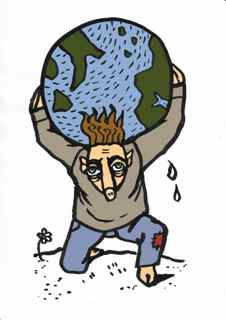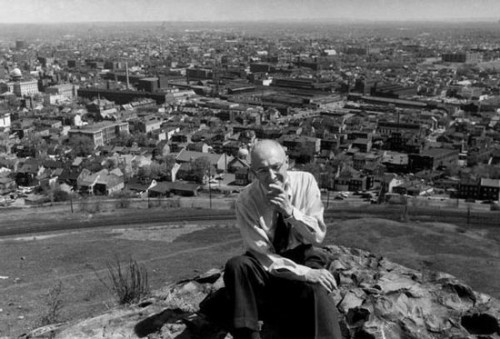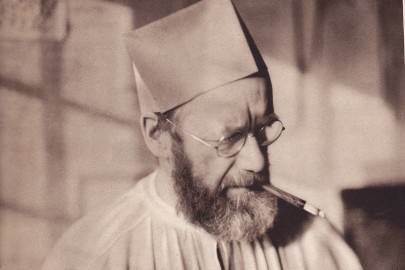
Norbiton may have found its perfect twin town – the city of Paterson, NJ. But how to describe it?
I have been reading Paterson by William Carlos Williams, and in consequence stand accused in the assizes of my own head of writing only (in Ezra Pound’s phrase, referring to the sort of poetry William Carlos Williams did not write) ‘a gabble of verbiage’. So I will make this a brief and somewhat shamefaced post.
Paterson, published from 1946 in a sequence of four, and eventually five, volumes, was Williams’ elaborate analogy of a city to a human life (“that a man in himself is a city, beginning, seeking, achieving and concluding his life in ways which the various aspects of a city may embody”), the city in question – Paterson, New Jersey – being his home town, where he practiced medicine and wrote poetry.
His credo of non-verbiage was first elaborated in an earlier (1927) 85-line poem called also Paterson, a proto-tilt at the greater poem into which, fifteen years later, he imported the following lines wholesale:
Say it, no ideas but in things –
Nothing but the blank faces of the houses,
And cylindrical trees
bent, forked by preconception and accident
split, furrowed, creased, mottled, stained
secret – into the body of the light.
There is, needless to observe, no gabble of verbiage in these lines. But there is a proliferation, a multiplication of exactness, almost in spite of their declared intent. As though merely stating the simplest stripped abstracted form of the proposition – cylindrical trees – requires a touch more precision – bent – and a refinement of that – forked by preconception and accident – and so on. Until a sufficiently exact idea of these trees and the insistent oddity of their presence has been cornered. Because there are ideas, of course; but only in things – a term itself algebraically general (‘no ideas but in x where x = tree’).
This proliferation in search of an infinitely elusive precision is a response, I suppose, to the Jamesian problem of the elusive thing. In his fiction, Henry James, as his brother the philosopher William James pointed out to him, never properly grasps the object of his attention, but endlessly circles it, makes passes at it, hedges and hesitates and circumlocutes in pursuit of some ever more exact phrase, some more definitive statement; which somehow never quite penetrates to whatever the thing in question is. The faith is that the object of attention will emerge, as though in the negative of a woodcut, somehow within these various trajectories.
It is in other words hard, as James and William Carlos Williams were not alone in finding, not merely to elucidate an idea, but to pin down the thing, whatever the thing may happen to be. To get at its quiddity.
And this is annoying, I shouldn’t wonder, because poets are professionally assailed by things. I am put in mind of a short poem by William Empson, in which things themselves multiply – in this case, things that happen to you – and refuse to be got at or docketed or handled in any useful way:
It is this deep blankness is the real thing strange.
The more things happen to you the more you can’t
Tell or remember even what they were.The contradictions cover such a range.
The talk would talk and go so far aslant.
You don’t want madhouse and the whole thing there.
And I notice that in quoting this my own talk has, as usual, gone so far aslant. So I will conclude by recording an observation of Hugh Kenner’s in The Pound Era: that Paterson – the place, not the poem – was described in an article in the London Times (in 1963, the year of William Carlos William’s death) as ‘an imaginary New Jersey town’.
Four, and later five, volumes, it seems, couldn’t quite grapple it to the earth.










Thanks for the Paterson tip, Toby. I’ve enjoyed some of William Carlos Williams’s poetry and that sounds an interesting project so I shall certainly try to get my hands on it.
Williams, like Locke, was a physician–one notes in Locke the insistence on perception and particulars.
I was in Paterson once, more than 20 years ago. I wish I’d had time to look at it more closely, but I spent my day at a customer’s site trying to figure out why their typesetting unit was putting out garbled text.
Can’t think of a more appropriate way to spend time in Paterson than puzzling over typesetting and garbled text
Paterson is great stuff. Williams has been overlooked by most British readers and for years his voluminous complete poems were not available here. (Charles Tomlinson, a fine British poet more appreciated in America than here, edited a selected edition for Penguin years ago, which helped). So mostly Williams was known in Britain as the writer of a few short anthology pieces, poems very much about things – red wheelbarrows, plums in iceboxes, and a wonderful one about a cat clambering across a cellar that was well analysed by Hugh Kenner in the book you quote, Toby, The Pound Era. In Britain we’ve missed out rather on this bit of the American tradition (where the wonderful Lorine Niedecker and the impenetrable Louis Zukofsky reside). I sometimes wonder if I’m the only British reader of Niedecker. The poetic city is crowded and lonely at once but, as Dylan sang, ‘In Paterson that’s just the way things go.’
I don’t know if you’re the only British reader of Niedecker, but I’d never come across her – thanks for the tip.
Pound Era is a fabulous book (just gave it to someone as a present a couple of weeks ago, but haven’t read it myself in twenty years, bar the odd section now and then – had forgotten the clambering cat)